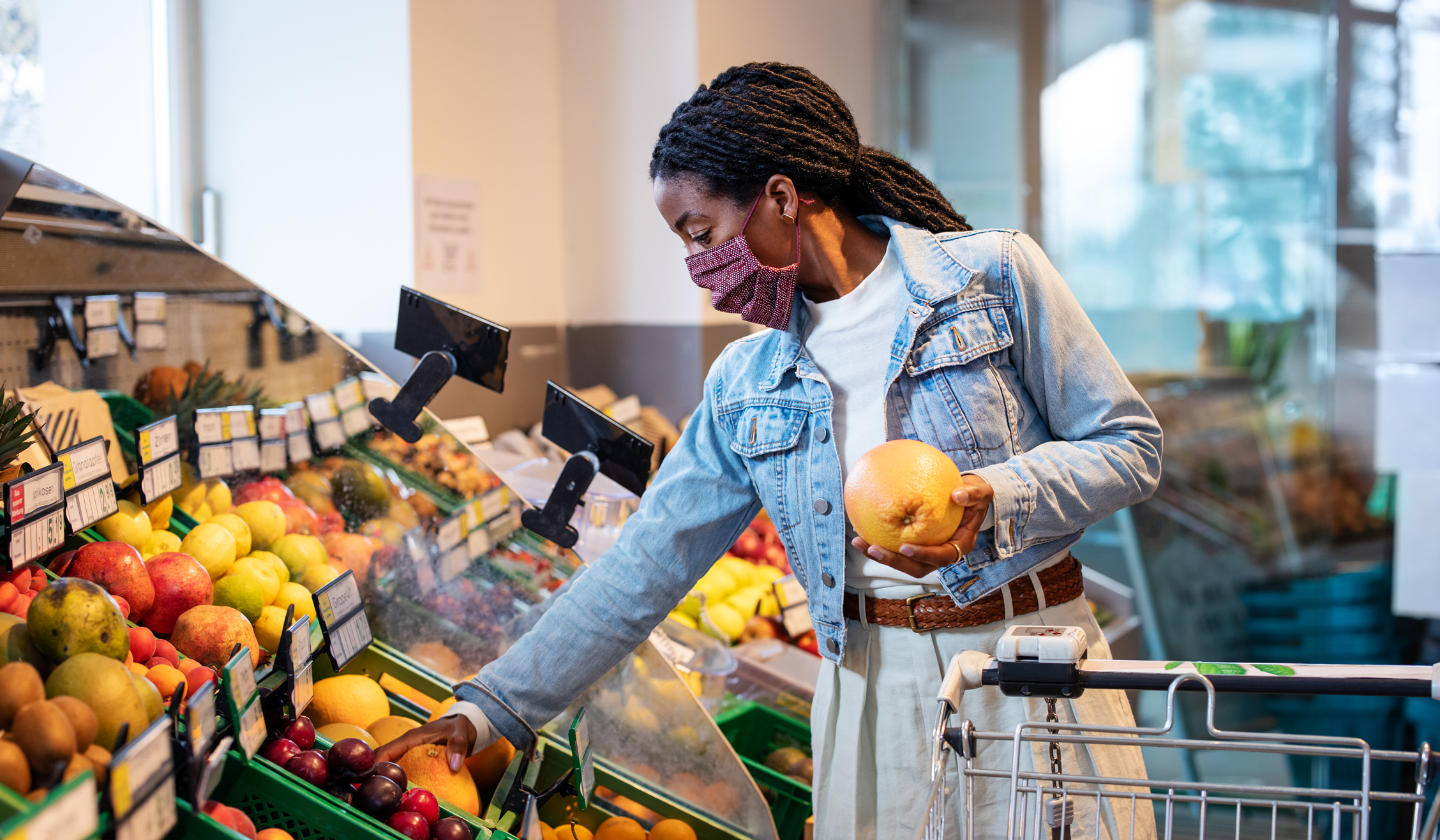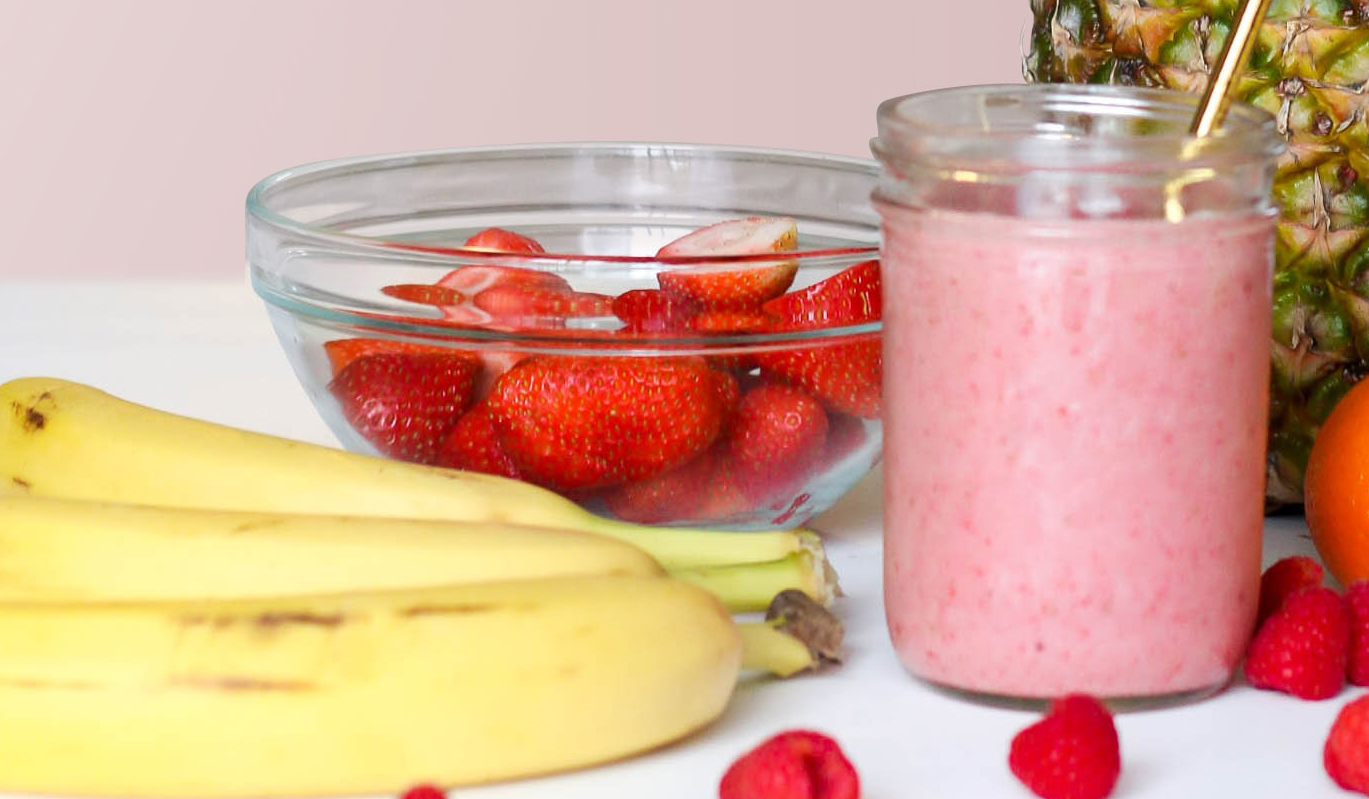Eating more fruit and veg can make you less stressed, says new study
Is your diet to blame for all that stress and anxiety? Getting your five-a-day could be just what the doctor ordered


Fruit and vegetables are amazing. They're full of wonderful micronutrients, can be whizzed up into healthy smoothies or juices for an added kick (using our best blender models, naturally) and are naturally low in calories while being high in nutrients. Varied consumption of fruit and veg, or having a "colorful plate" is associated with a lower risk of heart disease, stroke and even cancer.
However, that's not all they're good for: a new study has found that eating more fruit and vegetables every day, around 470 grams, is associated with lower levels of stress compared to those who ate just 230 grams.
The study, published by researchers from Edith Cowan University, studied the link between fruit and veg intake and stress levels across data from more than 8,600 Australians. The report found those who ate over 470g of fruit and veg a day had 10% lower levels of stress compared to those who only ate half that amount. For context, the World Health Organization recommends eating at least 400g of fruit and vegetables per day, with 80g counting as a "portion".
Lead researcher, PhD candidate Simone Radavelli-Bagatini, said: "We found that people who have higher fruit and veggie intakes are less stressed than those with lower intakes, which suggests diet plays a key role in mental wellbeing.

"Long-term and unmanaged stress can lead to a range of health problems including heart disease, diabetes, depression and anxiety so we need to find ways to prevent and possibly alleviate mental health problems in the future."
Stress is a complex topic with a range of factors both internal and external – no amount of fruit and veg is going to help if you've lost your job – but knowing a more varied diet plays a factor in long-term feelings of stress can help. Gut health has been found to play a role in combating anxiety and depression, and the healthy fibres and micronutrients in fruit and veg are an essential component of this.
Healthy eating can be expensive, but there’s easy ways to cut down on the cost of ingredients: one study by the University of California showed no significant difference in the nutritional value of frozen fruit and veg vs the fresh stuff. Buying bags of frozen peas, carrots and broccoli florets is just as good for you, works out cheaper and keeps for longer.
Get the Fit&Well Newsletter
Start your week with achievable workout ideas, health tips and wellbeing advice in your inbox.
Cook your vegetables healthier instead of dousing them in oil, using tools like our best air fryers, which fries and roasts using a fraction of the amount of added calories, or our best grill list.
Matt Evans is an experienced health and fitness journalist and is currently Fitness and Wellbeing Editor at TechRadar, covering all things exercise and nutrition on Fit&Well's tech-focused sister site. Matt originally discovered exercise through martial arts: he holds a black belt in Karate and remains a keen runner, gym-goer, and infrequent yogi. His top fitness tip? Stretch.
-
 I have bunions, but I can't feel them with these affordable Skechers walking shoes—now 22% off at Zappos
I have bunions, but I can't feel them with these affordable Skechers walking shoes—now 22% off at ZapposDeal A generous toe box makes the Skechers Max Cushioning Arch Fit Areena perfect for wide feet
By Lou Mudge
-
 Can't do a sit-up? A trainer says you should do these chair-based core exercises instead
Can't do a sit-up? A trainer says you should do these chair-based core exercises insteadNo sit-ups or planks
By Jennifer Rizzuto